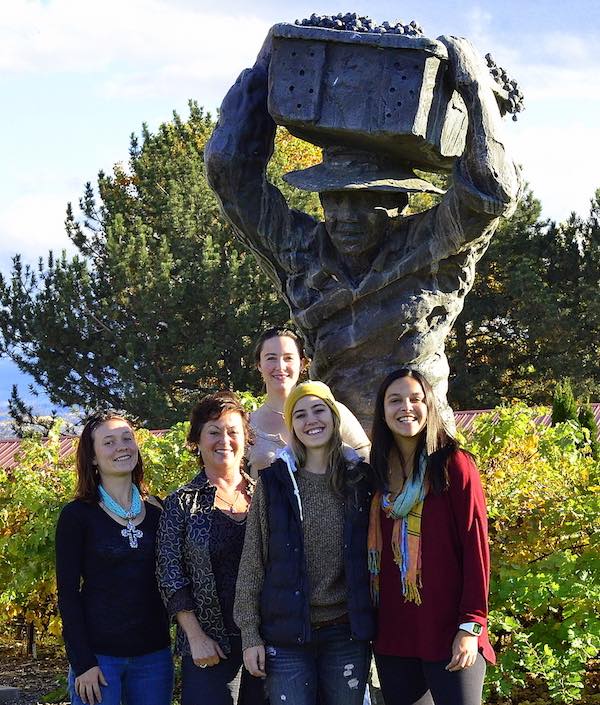
WALLA WALLA, Wash. — Great Northwest Wine recently met with a group of first-year students in Walla Walla Community College’s Enology and Viticulture program to talk with them about how they see their futures as women winemakers.
The students were Annie Martz, 27; Ellie Davidson, 20; Cheri Cassidey, 55; Bailey Bromiley, 20; and Devyani Gupta, 23.
The idea for this roundtable discussion was spurred by a guest column by Walla Walla Valley winemaker Ashley Trout that prompted discussion regarding women in winemaking.
GNWW: Tell us how you got started in wine?
Martz: I worked in restaurants and bartending for years (after growing up in Everett, Wash.), and then I decided to make the transition to wine production. I was working in a nice wine bar and I found the differences between the various wines fascinating. Then, I took a trip to Europe and tried tons of different wines all over. When I came back, I found a winery in Woodinville and worked there for two years until I realized that I could afford a community college education, and found this program.
Davidson: My whole family has been into wine, so I’ve grown up around it since I was a little kid (on Bainbridge Island, Wash.) I think wine is just really beautiful, the vines, the grapes, the leaves are all just outstandingly beautiful, and I would love to know everything I can about it all. I’m currently 20 years old, so I’m just a little baby, but that’s OK because I can get a lot of experience in before I’m ready to reach out to big wineries and put my name in.
Cassidey: I grew up in the iconic Sonoma-Napa Valley and have been around the wine lifestyle my whole life. I’ve worked for some fabulous houses: Gundlach Bundschu, Chandon, Schramsberg, Alpha Omega and Buena Vista, and also in Carmel Valley — always in tasting rooms. For seven years, I also owned, with a partner, a tasting room in Olympia, Wash. I moved to Walla Walla when I was fortunate enough to get the last position in this year’s EV program.
Bromiley: I grew up in a small town, Waterville, Wash., on my parents’ wheat and cattle farm. I’ve always been around agriculture, and that’s what drew me here. I really love viticulture. I love food and wine, and all the different things you can do with wine. I love that it’s an art and a science.
Gupta: When I was a really little kid in Portland, apparently I would take my hockey stick out into the yard and pretend that I was tilling vines, and that I had some little goats to make cheese to go with the wines. Both of my parents are fantastic cooks, and my Dad always had a cellar. First, I studied to be a cognitive psychologist, focusing on sensation and perception, and I really enjoyed that. But the second I turned 21, I started submitting my résumé to tasting rooms here in town. When I started working in wine, I just fell down the rabbit hole and I realized that the only thing I enjoyed more than talking about my research in sensation and perception was talking about wine. So I finished my research job at the University of Washington and moved back here to be in this program. And I don’t regret a minute of it.
What surprises women winemaking students?
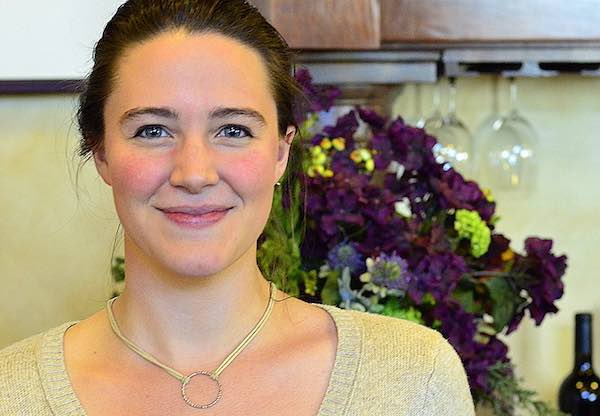
GNWW: This is your first quarter in the enology and viticulture program. What’s the most surprising thing you’ve learned so far?
Gupta: How much fun a pressure washer is!
Bromiley: How much hands-on work we get to do in this program.
Cassidey: How well-run this program is. Everyone here really knows their stuff, inside and out.
Davidson: How crazy yeast is. It’s an amazing little creature. I had absolutely no clue!
Martz: How much I love the chemistry part of it all.
Enology or viticulture?
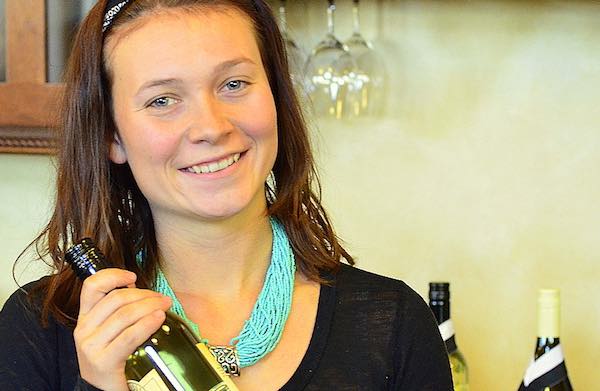
GNWW: At this point, do you see yourselves ending up on the enology or viticulture side of the industry?
Martz: It’s still too early to tell, but possibly enology because of the chemistry.
Davidson: I really love working in the vineyard, but I could see myself doing it all. Right now, we’re so new in the program and everything is so interesting!
Cassidey: I want to learn everything. I’ve always been in promotion, marketing and sales, and I like to educate people about wine, so I see myself continuing with that.
Bromiley: I want to be a vineyard manager because I have a background in agriculture and I love being outside and growing things.
Gupta: I love working on each wine, each with its own personality. I think I’m happier in the cellar right now than in the lab. I like dirty floors, and I don’t mind doing the grunt work. I’m also very happy in the vineyard, and as soon as I can, I hope to buy a few acres and begin planting my own vines.
Will being a woman affect your career path in wine?
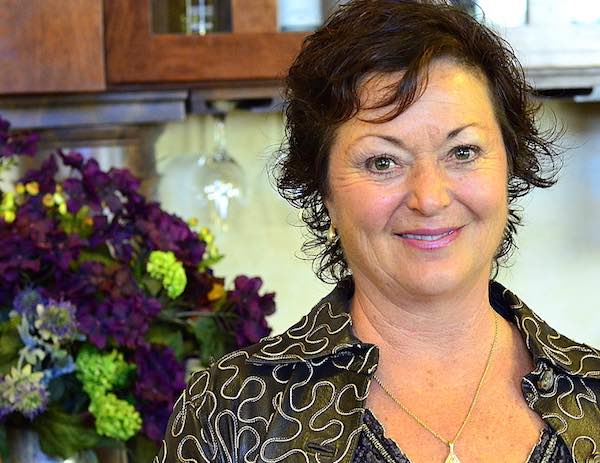
GNWW: How do you think that being a woman might affect that choice?
Gupta: I’m getting my forklift certification because I think the more skilled I am at moving a 10,000-pound machine the better. If you’re climbing a tank and you fall in, it doesn’t really matter if you’re male or female. But I’ve definitely had the experience as a young woman that older men sometimes just don’t want to listen to you, and they’ll go and find your male colleague to verify what you just said.
Davidson: I came in this program not even thinking about gender. I came to make some kick-ass wine, and if I have to compete against a few more boys than girls, then I will. I think that if people notice that you are knowledgeable, that you are the person to ask about things, then it shouldn’t matter what gender, what age or what race you are.
Martz: I think we’re going to be seeing a lot more women in the industry because of technology. We no longer have to rely on burly guys because we have more mechanization. And we also have a lot more women in the sciences than we used to.
Males dominate vineyards, cellars
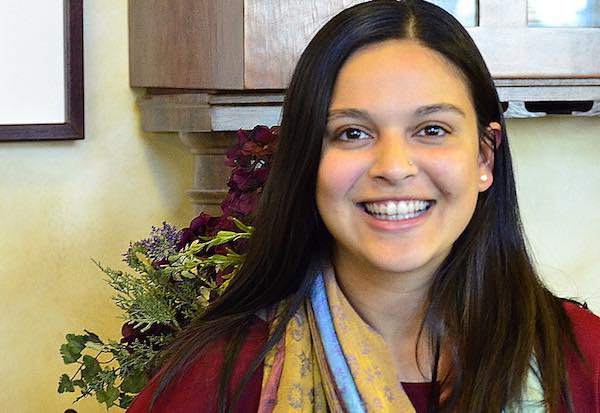
GNWW: Still, there’s a culture in the vineyards and in a lot of cellars that is quite male-dominated.
Davidson: Well, what are some of the assumptions that a man might make? That women aren’t strong enough, can’t run the calculations as quickly, are too sensitive. You have to show them that they’re wrong, and if that means lifting a bunch of bins, or getting your forklift certification, you do it. I think that any woman can make her way into this industry if she’s willing to fight for it.
Bromiley: As a woman, you need to prove yourself because a lot of men will think you’re vulnerable, not strong, kind of wimpy. But there should be no discrimination in the industry, and I think we should all work hard together, as a team.
Gupta: As to why there aren’t that many women in the industry, if you were looking at two career paths and one had a few obstacles and one was lined with many more, you might not choose to go in that direction. Is anyone saying “no” to my face because I’m a woman? No. But am I having some options skewed or eliminated because I’m a woman? Yes. And even having to overcompensate because you’re a woman is, in a way, a limiting factor.
Women winemaking students wonder about family planning
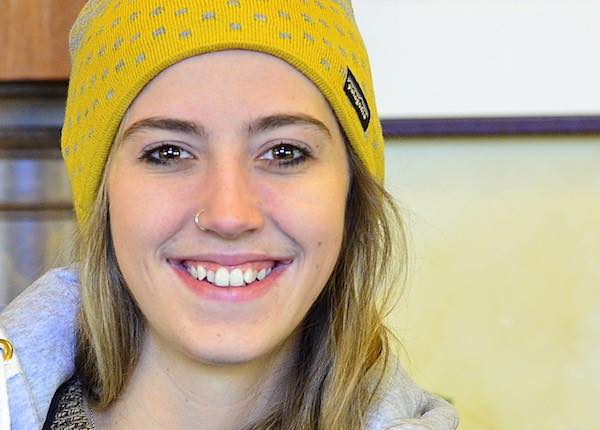
GNWW: How do you think you might have to modify your personal life as a woman in the wine world?
Gupta: I’ve thought a lot about that, especially about timing a pregnancy. Can you imagine rolling barrels when you’re pregnant? Or even tasting wine every day? Not a good plan. And just thinking about family life, it’s a bit of a paradigm shift when you realize that Mom will not be home very much during three months of the year.
Cassidey: At this point in my life, I can actually see myself moving to Italy or Spain and getting a nice little job beside a winemaker, and I don’t want to worry about the gender issue. I don’t think about it – never have.
Davidson: For example, if I wake up thinking, “Oh man, I have cramps,” the next thing I’m going to say is, “Oh well, guess I’ll go to the winery.” It’s a real-life problem, and the winery’s a real-life place. It’s hard to juggle a lot of things, but men have a lot of personal issues, too – you work them out.
Martz: There is meticulous planning that you have to go through, if you want to have time for a family, even for a social life, when you’re working a 17-hour day.
GNWW: What would you say is a feminine style of winemaking, if there is one?
Martz: If a wine is soft and round, we say it’s feminine because we think of women as soft.
Davidson: I’d say that calling a plush, luscious red wine feminine is a big compliment.
Cassidey: I hate to stereotype, but a lot of women prefer a nice, dry rosé and they love the ice wines, so I’d say those are feminine in style.
Bromiley: Our College Cellars Syrah that we made in the first weeks of school, we really wanted it to be big and bold, but it turned out to be very feminine. It’s all cherry, really sweet and doesn’t have any bite.
Gupta: Wine is a sensual experience. A wine with great aromas because we think of women as smelling good – although you might want to check back with me on that after a long day working on the cellar floor! I think a feminine wine is soft on the palate, has a plush mouth feel and a certain tenderness.
Women winemakers must ‘pull up other women’
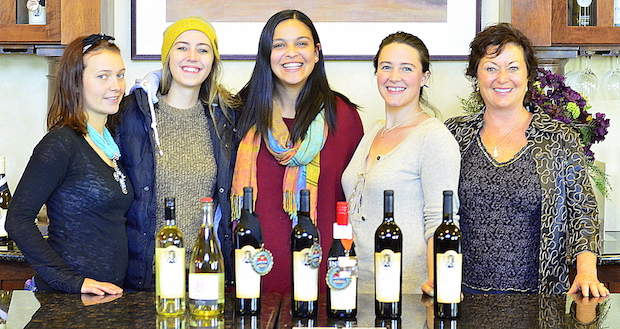
GNWW: Is there anything else you’d like to tell our readers?
Cassidey: I firmly believe that this is one of the best programs in the country. What they’re offering here, for the cost of community college, is mind-boggling. I feel like we’re getting a private education.
Bromiley: Women kick ass! But in our class we all work together, men and women. We all work hard. There’s no disrespect or discrimination.
Martz: As women, we’re all pretty exceptional, I’m not going to lie. We’re on the cellar floor all the time, and our output is high. I hope that we’ll be role models for other women 10 years down the road.
Davidson: I feel lucky to be a woman joining the wine industry at this time because I think there will be a lot of opportunities for us that haven’t yet arisen, especially in Walla Walla. And all of the women in this program are amazing, doing such high-quality work. We all have the ability to kick butt, day in and day out, and I think that’s so impressive. There’s so much passion, so much energy. There are going to be some really cool things coming from us in the future.
Gupta: Here in Walla Walla, the industry’s going to see a turnover. The first wineries that were started, those people are wanting to retire soon and pass the business on to someone else. And I hope there will be space made for women to enter the industry. Women need to help pull up other women, and not just in winemaking. So female winemakers, hire us.

Leave a Reply